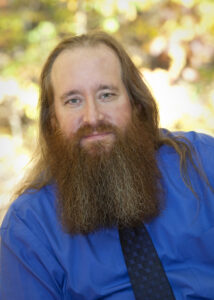I recently spent several days at the Living Games conference in Austin, Texas. In getting oriented to Austin, I discovered that one of its slogans was “Keep Austin Weird.” And I found that to be a little bit of a relief, as it completely explained why my 3.5 hour presentation on personality disorders began at 10:00 PM. This made it the first time I have ever taught a group of people until 1:30 in the morning, but it didn’t seem to bother anyone.
For recent alumni that are reading this, I took “Elliot” out on the road for the first time and it was a success. For those who haven’t had class with me, particularly Psychopathology, “Elliot” is the identity I began to use about 10 years ago (pre-MSP) to teach students to recognize some of the overt signs of the personality disorders. This usually takes a full class session, and is one of the experiences students remember throughout the year.
The idea behind Elliot is that he is a client who has the same general demographics and reason for his referral to therapy (“problems at work”), but then I layer the personality disorder on top of these so that students are working from an established baseline.
This session ended up being with people that were not psychology majors, but each had an interest in the subject matter as they often host games open to the public, and at times have experienced difficult people. That was one of the best aspects about the session, in that we focused on harnessing compassion and gaining more of an understanding of how people come to be so dysfunctional, and how a person with no training can be most effective with them.
I also presented a summary of my dissertation Persona Ex Machina on a panel with other scholars. My panel had individuals from Colorado, Massachusetts, and Finland, all who have studied role-playing in some capacity across different disciplines. To my surprise, the panelists as well as some of the attendees had read Heidegger and Husserl in terms of phenomenology. A large part of my presentation was introducing Clark Moustakas’ Transcendental Phenomenological model to the masses and applying it to Live Action Role-Playing. This was one of the best parts, representing the school and my time and education with Clark himself, and bringing his work further into the public light, and seeing people hungry to read more of his work.
In terms of the Living Games conference, I will admit I had a brief moment of spontaneous role-play. One of the conference presenters was on a stage with a large wig and striped scarf on a stage lip syncing to Whitesnake’s “Crying In The Rain” and they beckoned me up on stage, so I grabbed one of the inflatable “air” guitars and embraced my inner 80’s guitar hero. Unfortunately, there were no paparazzi to capture that on film, so just like in role-playing, you will have to use your imagination.
 Ryan Blackstock is Core Faculty in the MA program at MSP.
Ryan Blackstock is Core Faculty in the MA program at MSP.